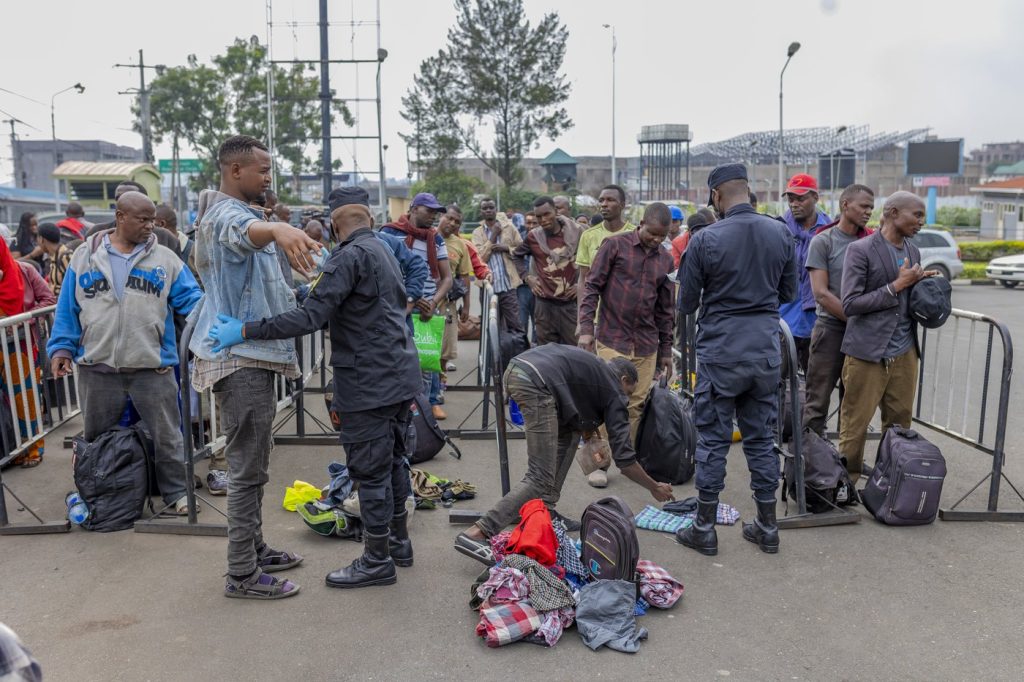The situation in eastern Congo, particularly in the city of Goma, has escalated dramatically as Rwanda-backed rebels, known as the M23 rebel group, have captured significant portions of the city, including its airport. This development occurred amidst ongoing calls for a ceasefire from Rwandan President Paul Kagame and international actors, marking a crucial moment in a decades-long conflict.
On Wednesday morning, Goma appeared relatively calm after a tumultuous day filled with violence, where thousands of residents fled the area seeking safety from missile attacks. Injured individuals poured into local hospitals, which were already struggling to cope with the influx of casualties. While the Congolese government forces maintain control over a few areas within Goma, reports suggest that the M23 rebels have effectively taken over much of the city.
The M23 rebels, who have stated they seized control of Goma on Monday following weeks of military movement, are one of approximately 100 armed groups competing for influence in the mineral-rich eastern regions of the Democratic Republic of the Congo. The escalation in conflict coincided with the rebels' progress into Goma, leading to devastating consequences such as dead bodies left in the streets and the displacement of hundreds of thousands of individuals who were already vulnerable.
According to U.N. spokesperson Stephane Dujarric, clashes between M23 rebels and government forces culminated in the rebels taking over the airport. He warned of a significant risk of lawlessness due to the increasing availability of weapons within the city. Meanwhile, President Kagame has been vocal about the need for a ceasefire, stating on X that he discussed the situation with U.S. Secretary of State Marco Rubio, emphasizing the importance of addressing the underlying causes of the conflict to achieve sustainable peace.
Despite the Rwandan government denying allegations of their support for the M23 group, U.N. experts estimate that around 4,000 Rwandan forces are currently operating in Congo. Rwanda has also accused the Congolese government of collaborating with Hutu rebels and former militiamen responsible for the 1994 genocide. Rwandan Foreign Minister Olivier Nduhungirehe has stated that Congolese President Félix Tshisekedi must engage in negotiations with the M23 to resolve the ongoing conflict.
The M23, composed largely of ethnic Tutsis, has indicated its intentions to establish an administration in Goma to facilitate a return to normalcy for its residents and displaced individuals. However, analysts express skepticism about the feasibility of a rebel withdrawal, noting that the group's confidence has surged due to perceived support from Rwanda, which believes Congo is neglecting its regional interests and failing to uphold prior peace agreements.
Murithi Mutiga, program director for Africa at the Crisis Group, highlighted the challenges that lie ahead in securing a peaceful resolution, suggesting that the current environment may make disengagement by the M23 far more complex than in 2012 when they previously captured Goma but retreated after just a few days. As the situation unfolds, the stakes for the region remain high, underscoring the urgent need for diplomatic intervention and strategic peace initiatives.










